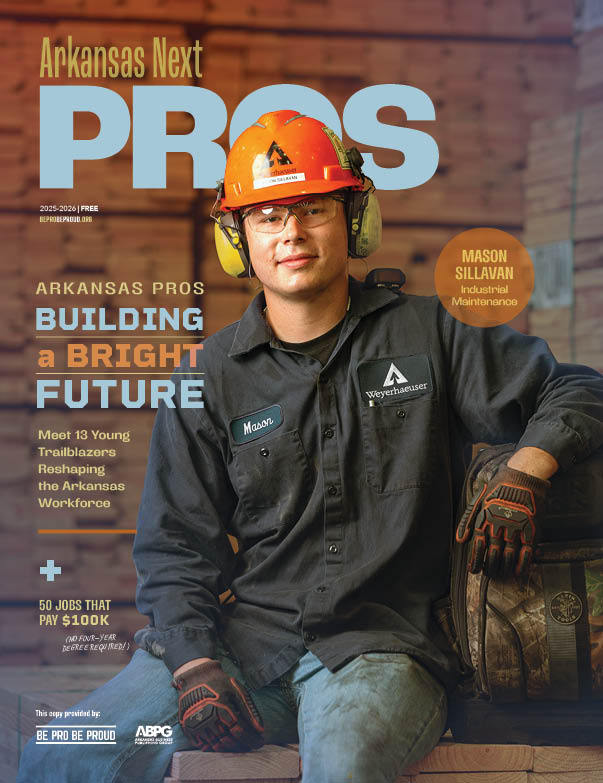What’s It Really Like to Be a Doctor?
By Lydia McAllister on Friday, September 25, 2020

Meryll Pampolina Bouldin was practically born into the health care industry, having two parents who worked in the field. She knew from an early age that this was the industry for her. Instead of the traditional eight-year route (four years of undergrad and four years of medical school), Meryll chose a fast-paced program where she was able to interact with patients when she was only 18. The early clinical exposure really drove home the feeling that she had chosen the perfect path, and her passion was rewarded — Meryll received two national awards (the 2018 Resident Rocks It Award and the 2019 Outstanding Resident Award) while completing her residency.
Meryll completed the UAMS Emergency Medicine Residency Program in 2019 and is now the Assistant Professor of Emergency Medicine and Co-Course Director for the Practice of Medicine (Part II) class.
We caught up with this talented MD to ask about being a doctor. Here’s what she had to say:
What do you do every day?
“Most of my time is spent working in the emergency department (ED) helping to take care of patients. I see a variety of complaints (ranging from traumas, strokes, heart attack, all the way to the common cold and sprained ankle). I also get to teach resident physicians who work shifts with me.”
What do you wish more people knew about your job?
“Emergency medicine is a team sport. Being an emergency physician is so much fun, but I would not be the physician I am today without the help from my colleagues, nurses, techs, respiratory therapists, pharmacists, social workers/case management team and consultants! We are literally all in this together. Also, emergency medicine is not at all like the TV shows.”
What motivates you?
“Knowing that I have the chance to positively impact someone’s life.”
What challenges do you face?
“Work-life balance is a challenge. Burnout is also something that’s often talked about, but ... [don't] lose track of what makes you happy!”
What’s your advice for students considering medicine?
“Make sure you do it for the right reasons. Once you commit, I think the key to success really boils down to working hard and being kind.”
“Saving someone’s life is
always a cool feeling.
It will never get old.”
– Meryll
WHAT YOU MUST KNOW
If you’re considering nursing…
“Volunteer at a hospital or shadow a nurse. There's really no way to know what it's like until you get out there and experience it.”
Highest degree earned:
Medical Doctor (MD) from UAMS in Little Rock
First thing you do at work each day:
“Say hi to everyone, then get on the computer – either to respond to emails or to log onto the EMR (electronic medical record).”
Coolest thing you’ve done at work:
“Saving someone's life is always a cool feeling. It will never get old.”
Fave rotation in med school:
“Definitely emergency medicine.”
Best part about your job:
“Knowing that I have the chance to make a difference.”
The path to becoming a doctor typically looks like…
► 4 years of undergrad
► 4 years of medical school
► Obtain license (process takes a minimum of six weeks)
► 3-7 years of residency*
◊ Optional: Post-residency fellowship (1-3 years)
◊ Optional: Board certification process
How long does it take to become a…
Surgeon
16 years
The payoff: An average salary of $248,380 in Arkansas
However, specialized surgeons like neurosurgeons, orthopedic surgeons and cardiac surgeons can make a lot more!
Anesthesiologist
12 years
The payoff: An average salary of $241,710 in Arkansas
Doctor of Veterinary Medicine (D.V.M. or V.M.D.)
12 years
The payoff: An average salary of $98,050 in Arkansas
Family Medicine Physician
11 years
The payoff: An average salary of $218,870 in Arkansas
Psychiatrist
8 years
The payoff: An average salary of $180,820 in Arkansas
Dentist
8 years
If you want to be an orthodontist, add 3-4 more years to your education plan.
The payoff: An average salary of $168,420 in Arkansas
Pharmacist
8 years
The payoff: An average salary of $120,020 in Arkansas
*General physicians, like those practicing pediatric and internal medicine, must complete 3 years of residency. Specialists in fields such as pathology and obstetrics/gynecology must complete 4 years. Urologists and otolaryngologists require 6 years; and neurosurgery is the longest at 7 years.
Sources: American Board of Physician Specialties, nurse.org, kumc.edu, doctorly.com, salary.com, payscale.com















